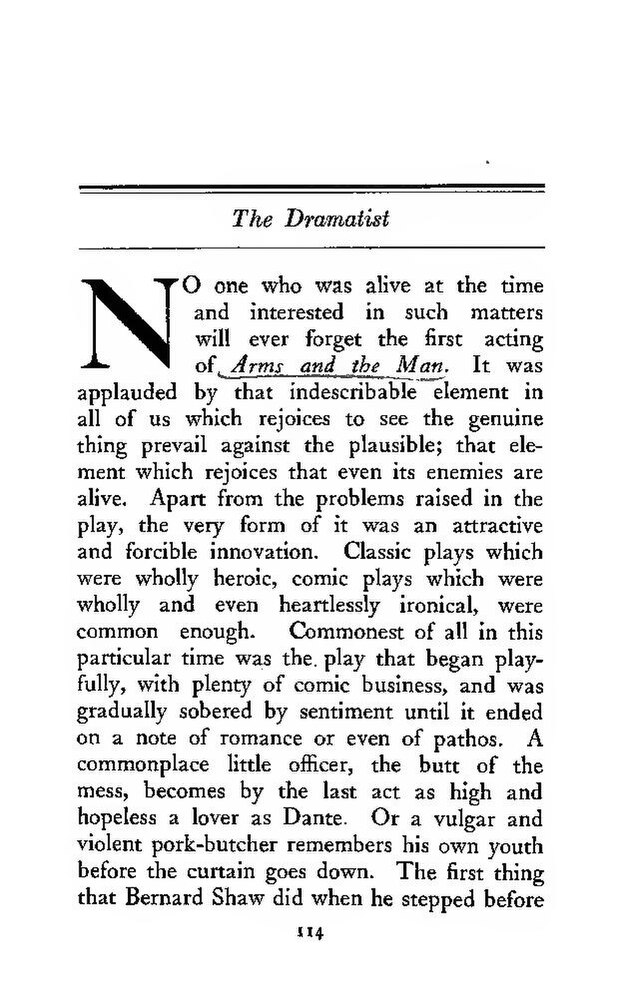The Dramatist
No one who was alive at the time and interested in such matters will ever forget the first acting of Arms and the Man. It was applauded by that indescribable element in all of us which rejoices to see the genuine thing prevail against the plausible; that element which rejoices that even its enemies are alive. Apart from the problems raised in the play, the very form of it was an attractive and forcible innovation. Classic plays which were wholly heroic, comic plays which were wholly and even heartlessly ironical, were common enough. Commonest of all in this particular time was the play that began playfully, with plenty of comic business, and was gradually sobered by sentiment until it ended on a note of romance or even of pathos. A commonplace little officer, the butt of the mess, becomes by the last act as high and hopeless a lover as Dante. Or a vulgar and violent pork-butcher remembers his own youth before the curtain goes down. The first thing that Bernard Shaw did when he stepped before
114
